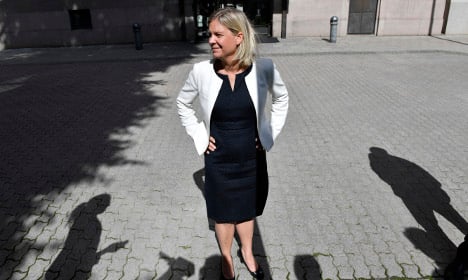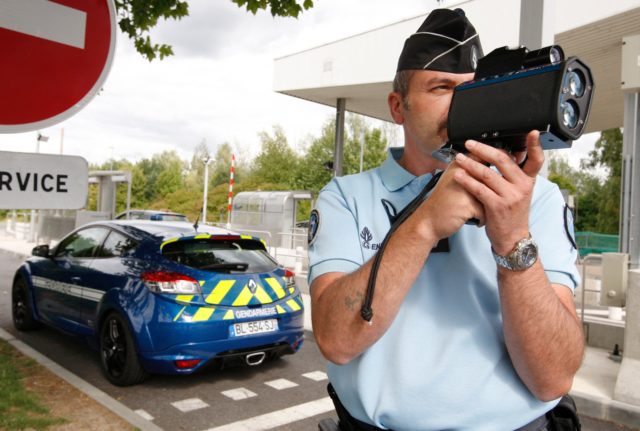Speaking after discussions with Swedish businesses on Monday held to dissect the consequences of Brexit, Andersson noted that it “isn't as if you can just cherry-pick and simply follow the rules you want, then have full access to the single market”.
She also dismissed questions from journalists over a possible bilateral trade agreement with London, emphasizing that there is a reason for having trade agreements at EU level.
Andersson did however say that the Swedish firms she met were keen to avoid unnecessarily long periods of uncertainty.
“They emphasized that it is important to have good chances to trade with the UK going forward, and that there is not an unnecessarily long period of uncertainty,” she said.
Several Swedish companies with operations in the UK were invited to discussions, but the business whose shares have so far fallen furthest on the Stockholm Stock Exchange since Thursday's vote was not summoned.
Kitchen fitters Nobia has 2,500 employees in Britain, and makes 45 percent of its sales there. By noon on Monday its shares had plummeted over 18 percent.
“Right now 2.5 billion kronor ($293 million) has disappeared from the company, and that’s a lot,” Nobia CFO Mikael Norman told news agency TT.
“We were already disappointed just before the weekend when it became clear that the majority of Brits voted to leave the EU. We think the reaction, a drop of 18 percent, is excessive, and believe in the long run that it will stabilize.”
Nobia has several factories in the UK and buys products from many other EU countries.
“With the pound now weakened it becomes more expensive for us to buy products from other EU countries, so we are affected a lot right at the moment. But I don’t think there is any reason to panic. There will be uncertainty in the market before it stabilizes. We have a buffer,” the CFO insisted.
Telecoms giant Ericsson is one of the companies that took part in the ministerial meeting. It did not want to go into detail on how Brexit could affect them, but expressed regret over the outcome of last Thursday's vote.
“Our commitment and priority has always been to support our customers and businesses in the UK regardless of the result of the referendum. As Sweden is a part of the EU we regret the UK’s decision to leave,” press officer Karin Ronander wrote in a statement.
Construction giant Skanska was also invited, but its press manager did not anticipate Brexit having a significant impact on their operations.
“It isn’t as if we need to take mass action. There won’t be any immediate impact on us as a company, and moreover, exactly what is going to happen is very unclear,” Edvard Lind said.



 Please whitelist us to continue reading.
Please whitelist us to continue reading.